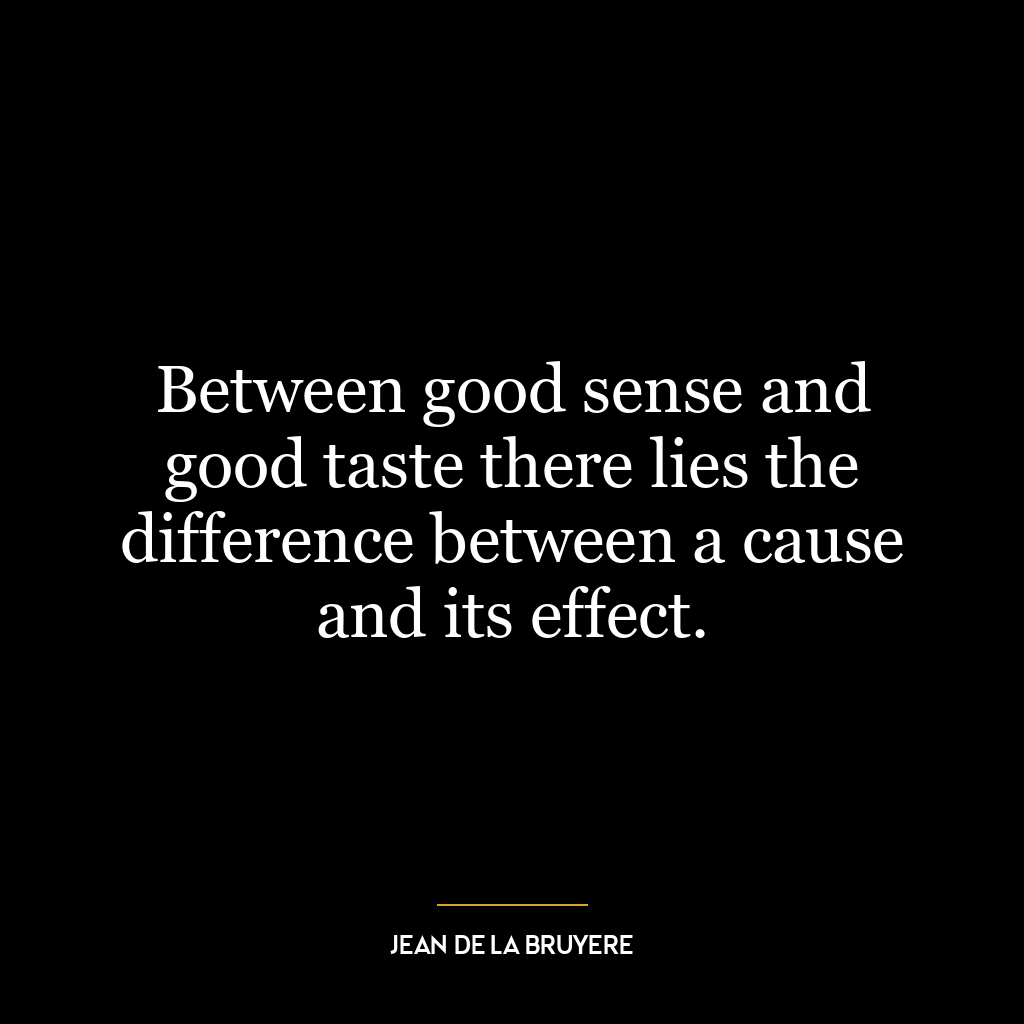The effect is delusion, and therefore the cause must be delusion.
This quote, “The effect is delusion, and therefore the cause must be delusion,” essentially suggests that our perceptions or interpretations of reality (the effects) are often influenced or shaped by our pre-existing beliefs or misconceptions (the causes). In other words, what we perceive as reality is often a reflection of our own mental constructs rather than the actual truth.
Delving deeper into this idea, it highlights a fundamental aspect of human psychology: cognitive biases. These are systematic errors in thinking that affect the decisions and judgments we make. For instance, if we have a preconceived notion about someone’s character based on their appearance (cause), it might lead us to misinterpret their actions according to this bias (effect), thus creating a delusion.
This concept can be applied in various aspects of modern life. In politics for example, media bias can shape public opinion by presenting information from a particular perspective. This creates a “delusion” among viewers who may believe they are getting an objective view when they’re actually receiving skewed information.
In personal development, understanding this concept can help individuals become more self-aware and critical thinkers. By recognizing that our perceptions might be influenced by previous experiences or biases, we can strive to question our initial reactions and judgments instead of accepting them at face value.
Moreover, it emphasizes the importance of open-mindedness and flexibility in changing one’s perspectives when presented with new evidence contrary to one’s beliefs. It reminds us not to hold onto false beliefs stubbornly but rather adapt our understanding based on new experiences and knowledge.
In essence, this quote encourages introspection about how much subjective interpretation shapes perceived reality – an important reminder for both personal growth and societal development.











